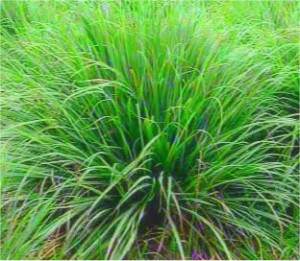Posts Tagged garden pest control
Landscape Maintenance: Simple Guidelines for Reducing Your Long-Term Costs
Beautiful and pristine landscapes enhance the general appeal of homes. In addition, landscape maintenance can increase the resale value of the property. Unfortunately, the cost of keeping your lawn, garden and other landscaping features in excellent condition can be high. As a result, it is not uncommon for homeowners to neglect this aspect of their real property. If you are struggling with keeping up with these expenses, you might be looking for a way to minimize costs without sacrificing your beautiful landscape. Here are simple maintenance tips to help you improve your landscape at lower costs.
Choose Low-Maintenance Plants

Your choice of plants will determine the level of maintenance required to keep your property in the best condition. In simple terms, some types of grasses, flowers, shrubs and trees need more intensive care to grow and thrive. If you have these high level upkeep plants, you will need to spend more water, fertilizer and labor on your landscape. Therefore, if you are planning on adding some fresh flowers or other plants to your landscape, opt for hardy plants. For instance, drought-resistant and indigenous plants will grow naturally without special care or high costs.
Remove Invasive Weeds
It is important to keep an eye on the weeds growing on your landscape. In general, invasive weeds are quite harmful to your decorative flora and the lawn. The unwanted plants tend to compete for nutrients and often cause the malnourishment of your valuable landscaping plants. Therefore, you should check your lawn periodically for weeds and remove them. This task is relatively easy and does not require special equipment. You can manually uproot the invasive species or use hoes or weeders. If your lawn is heavily affected, herbicides are also an option.
Consider the Composting Option
Landscaping plants need additional nutrients to thrive because the natural soil has limited nutrients. In general, homeowners purchase fertilizer and other enriching solutions from local stores and landscaping companies. Commercial products are convenient because they are readymade, easy to apply and well-balanced. However, this is not your only option. It is possible to create your own nutritional material by composting your green waste. This solution is viable if you have plenty of green waste and time to handle the composting process. The compost will enrich and improve the composition of the soil, and you will save on landscape maintenance costs.
Establish a Suitable Watering Routine
Residential lawns and gardens require regular watering for ideal growth. Unfortunately, numerous people spend more money than necessary on irrigation. This issue can be attributed to irresponsible watering practices. It is important to have a good plan to minimize water wastage. Where possible, it is advisable to place programmable sprinklers on your property. These devices will release water at predetermined intervals. Also, you should plan for watering in the mornings so that the water will not be wasted through evaporation.
Professional Landscape Maintenance
Landscape maintenance can be a time-consuming process. In addition, if you are not familiar with the work, you might not get the best results. Therefore, if you have insufficient time or have never dealt with the upkeep tasks in the past, consider professional landscape maintenance. The investment is worthwhile because you will avoid damaging your land. Also, it is cheaper to have an expert handle the work than causing damage and planning for restoration.
If you would like to learn more about professional landscape maintenance and possible money-saving tips, consult our experienced landscaping experts for information.
What’s Bugging You? Five Mosquito-Free Garden Plants
Summertime is the hardest time to control mosquitoes. Whether you are relaxing in your garden or near a pool, nothing is more frustrating than to have a mosquito buzzing in your ear. Spraying chemicals is one general solution most people go for, but it’s not necessarily the most safest option. To naturally prevent mosquitoes from crashing your outdoor festivities, here are some aromatic plants that can be easily grown in pots around your outdoor hangout space, or in a border around your patio.

Lemongrass This plant has a fresh lemony fragrance that is appealing to most people, but that mosquitoes absolutely hate. It is the main source of many commercial repellents and repellent lanterns, torches or candles.
Lemongrass can be grown by seed but it’s a lengthy process. If the planting area is a garden or patio, grow this grass behind small shrubs & flowers. Otherwise plant along seating areas or walkways. Better is to grow them in pots which can be brought indoors as the plant is sensitive to cold temperatures.
The quickest way to grow lemongrass is by purchasing a mature bundle of it through any preferred produce spot, Asian store or grocery store.

Marigold Commonly grown as ornamental border plants, marigolds are hardy annual plants which have a distinctive smell which mosquitoes, and some gardeners, find particularly offensive. Marigolds contain Pyrethrum, a compound used in many insect repellents.
Potted marigolds can be positioned near entrances to your home and any common mosquito entry points, such as open windows. The smell may deter mosquitoes from going past this barrier. While marigolds can be used as border plants around the patio, we do not advise putting marigolds on the patio table since the bright blooms may attract wasps.
Besides repelling mosquitoes, marigolds repel insects which prey on tomato plants, so you may want to plant a few marigolds in your tomato bed for added protection.

Ageratum Also known as Flossflowers, Ageratum emits a smell which mosquitos find particularly offensive. Ageratum secretes coumarin, which is widely used in commercial mosquito repellents.
Ageratum is a low-lying annual ornamental plant which reaches heights of 8 – 18”, and is easily recognized by its blue flowers, although there are varieties with pink, white and violet blooms.
This plant will thrive in full or partial sun and does not require rich soil. It is often displayed in rock gardens where low-lying plants are favored.
Although the leaves of Ageratum can be crushed to increase the emitted odor, it is not advisable to rub the crushed leaves directly on the skin.

Rosemary This herb is awesome for cooking, but did you know that it’s great for repelling mosquitoes, too?
Rosemary likes a Mediterranean climate, so it thrives in well draining soil and full sunlight. It’s easy to grow and doesn’t require much water. If you live in a warm climate, your rosemary will even survive the winter. If you live in a climate where the winter dips below 30 degrees F, plant your rosemary in pots so that you can bring it indoors during the winter.
Rosemary is technically a shrub and can get quite large, so trim it frequently.

Mint Why it is mosquitoes don’t like the refreshing, delicious scent of mint? It gives off a strong incense-like odor which confuses mosquitoes by masking the smell of its usual hosts.
Mint is a very hardy plant that grows rapidly in the ground or in pots. You can pick mint leaves and rub them on your skin as a mosquito repellent, or just include the plants in your landscape.
Mint leaves can be dried and used to make herbal tea. Its flowers will also attract bees and butterflies to your garden.
As a bonus, mint is also great for cooking and makes refreshing summer cocktails.
As you can see, these are just a sample of a few different plants out there that can help to keep bugs away! For more information and a list of plants that repel pesky mosquitoes contact DK Landscaping (707) 280-3632. So the next time you reach for the chemical bug spray, take a minute and think again, and choose something more natural!





